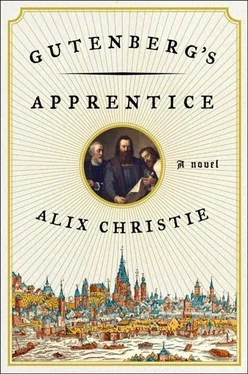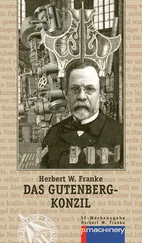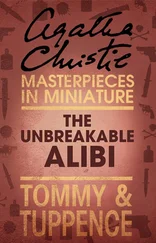She gave a quick shake of her head. “He needs you. He depends on you.” She watched him as he paced, creaking the floorboards, and put a warning finger to her lips. He stopped; they listened for an instant, but all was silent. “He trusts you, Peter.”
“He said that in Paris too.” Not even half a year had passed since Johann Fust decreed that Peter ought to represent him there.
“Things change.” She gave a little shrug. How satisfied she was to take what life dished out. He had always thought that there was more — had been lulled into believing he was destined for some higher calling.
“I could have made him proud.” He saw himself deciding with the rector which new books were worthy of the work of copying. Composing one himself perhaps — a work of scholarship. “Now I’m to throw away my life.”
“A life you’d not have had, except for him.” Grede looked at him, her dark head cocked. “As nor would I.”
She too had been raised above the grinding labor of a working life. She was a furrier’s daughter, quick and fine of shape, whom Fust, then newly widowed, spied and made his second wife. Peter still remembered those first awkward months six years before, this girl his age appearing in his life. They’d circled warily, at first, but found with time that they were much alike.
“So we are to be forever grateful?” Peter sneered.
“He said he’d only do this, with this man, if he was sure he had someone there he could trust. He’s gone too much, he needs somebody on the spot. There’s too much hanging on it.” She looked at him with the frank, clear gaze he’d come to know in all those times that Fust was on the road — Peter writing when the day was done, Grede always stitching, laughing, telling stories by the fire. “He needs a surety, a pair of trusted eyes.”
So Peter was not simply drudge, he realized, but spy.
That master worked them fourteen hours a day each cursed day of every week. Sweating, stoking, crushing, pouring. They did not even get a pause to celebrate the Sabbath; despite a host of meetings between clergymen and council, Archbishop Dietrich’s ban remained in place. The one brute fact was work, and then dead sleep, as if the pope himself colluded with this Master Gutenberg.
They cast no letters for the whole first month. Instead they smelted, wreathed in noxious smokes, to try to find a metal alloy that would hold. They stooped around the forge like witches, eyes red-rimmed, hands black, their faces draped in clotted veils. Peter ground the ores to powders and shoved them deep into the coals. Lead, tin, bismuth, iron, copper: it was his job to win the molten metal from the roaring fire, turn the dull earth into a shiny, deadly fluid. The master then would reach a claw, take out some drops to mix inside a beaker; he’d growl amounts that Peter noted on a parchment. The tests went on, each mixture entered in the scribe’s firm hand. Two of this , the master muttered. Four of that. Gutenberg would swirl the stinking streams together, lips drawn up, dashing the sweat from his long nose. Throw that slop out. Another drop. Ah yes, perhaps. He’d glance up, grimace, hand the beaker off to Hans.
Hans poured it in the casting box and counted up to ten, then Keffer drew the cast letter from the mold. They craned to see. Sometimes the alloy hardened before it even left the beaker, other times it did not harden fast enough. The hollows in the mold might fill right up, but then the metal would disintegrate or snap when Keffer tried to draw it out. Each time the master scowled and pulled at his lip, and sat back down.
For all this time he took no notice of his new apprentice, standing silently at his right hand. It seemed to Peter that he had no eyes for any living man. He would mutter to himself, or raise his head and snarl. By the blood of the saints. Cannot a runt among you fix a spoon? He did not eat unless Frau Beildeck brought the dishes to the workbench; he bent so low above the molten metal that great gobs of it adhered, then hardened, in his beard. It seemed to Peter that he sucked up every breath of air in that hot room.
The others laughed at Peter when he washed his hands before the midday meal. They laughed louder when he dried them off and worked some tallow into his chapped skin. Both Hans and Konrad had come from Strassburg with the master and spoke mainly to each other in their strange Alsatian twang. Foreigners, said Keffer, glad to find a friendly face. The journeyman was nimble with his fingers, always drawing with a lump of coal: blank faces with breasts, a nest of thatch. What luscious lips he could show Peter, he’d wink and whisper, if they ever could get sprung. Peter whispered back that you could pay in Paris with silk stockings if you liked. He was no prude, for all the years he’d had to hold his lust in check on monastery stools. Another reason, as if any more were needed, to get free. He couldn’t take his pleasure here the way he had in Paris, unwatched and anonymous. He felt his cock stir at the thought of all those satin entries, the dim red lamps, the damp, inviting archways of the street of Saint-Denis.
Fust stopped by once in mid-October, in between his autumn journeys, to check that things were “well in hand.” Choice words, his son thought darkly: “in hand” was what he was, his very essence. The master barely looked up at his partner, simply waved a splattered arm. “Godspeed on your work,” he let fly. “I’ll take the same for mine.”
It was not God’s speed, no — the very opposite. September and October passed; the daylight hours began to wane. Yet strangely they could feel a force drag the shop forward, silver drop by silver drop. There was a movement there, excruciatingly slow, yet inexorable — though where it led them, none could say.
And then one evening a change came.
The master raised his head, eyes bright, as if he’d caught a scent. He rubbed his eyes. “Yes,” he said. “Yes, yes.” The batch they’d made the day before had hardened just as soon as it was poured into the mold. This next batch they completed replicated that result. The letters sliding from the mold were crisp and hard; Konrad had run the first lot twenty times beneath the heavy press, and not a single one looked the worse for wear.
“By God, I think that’s it.” Gutenberg turned to Hans and smacked him on the arm. “You look like hell, you know.” He thrust his chin toward Peter and pointed toward the ladle. “If we can get it right again, at scale, we’ll drink tonight!” He drew his bushy brows together, chanting it like some old alchemist: “Two tin, four lead. Then just a quarter of antimony — to stiffen your sad pricks.” He smiled — a brief, exhausted flash. Hans and Keffer laughed.
Peter went to fetch the requisite amounts. The powdered ores were piled beside each other on a slate that Konrad had erected in a corner by the forge. “Not just a beaker, either,” Gutenberg hollered. “I want a bucket of the stuff.” He fake-punched Hans again. “And put some speed in, will you? I have got a wicked thirst.”
Peter hurried. He scooped and hurried, smelted and hurried. It was this hurry that wrecked everything, he thought as he dashed the sweat away. The pressure of racing to accomplish things without the wit to see if they were any good. He held his two hands steady as he poured and mixed the molten streams, longing for the slow and careful scoring of the pages, the focused trimming of his quill. The time to settle and to think. In half an hour he’d mixed a bucketful and carried it back to the bench. There, he thought, setting it down. The bastard ought to be content.
Gutenberg dipped in the ladle and splashed a test out on the stone. He pried the metal off and put it to his teeth, bit, and spat. “Good Christ,” he croaked, and thrust his tongue out, flecked with grayish crumbs. “What crap is this?” His face contorted as his hand flew out and knocked the basin over. A searing pain tore Peter’s hand; he screamed and flung it wildly to throw off the scalding ore that poured across it. Hans grabbed the flailing silvered glove and swiftly plunged it into the cooling bucket that stood ready by the forge. Peter was jerked along, twisting on his knees, aware of nothing but the ringing pain. The old smith held his whole arm under water, his own hands rapid as they shucked the now-cold metal from the puckered, raging skin.
Читать дальше












